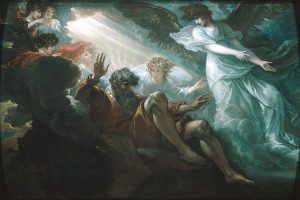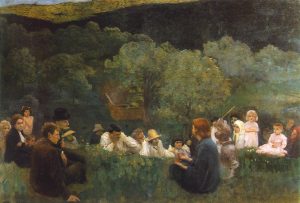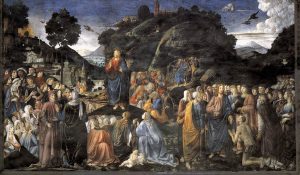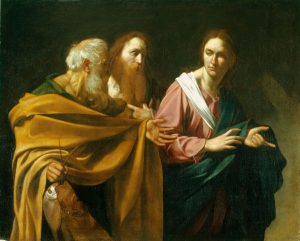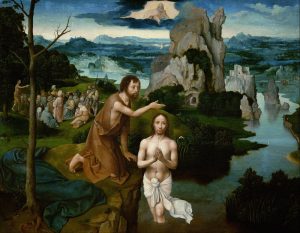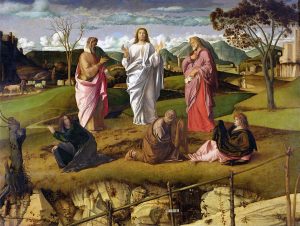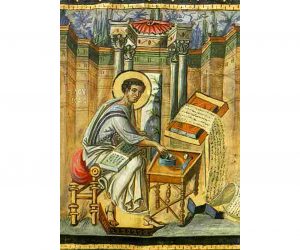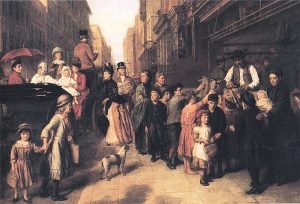Illuminations on the Lectionary readings for Feb. 19, 2023 (Last Epiphany A/Transfiguration)
First Reading: Exodus 24:12-18
The gradual revelation of Jesus as Messiah, which began last month with his baptism by John in the Jordan, draws to a close as Transfiguration Sunday concludes the season of Epiphany.
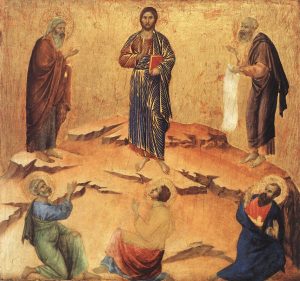
The Transfiguration (1308-1311), tempera painting on wood altarpiece by Duccio di Buoninsegna (1255=1319). National Gallery of London. (Click image to enlarge)
Midway between Christmas and Easter, we will now turn toward the penitential path of Lent. Sunday’s readings show us the awe and fear of humans encountering the divine. Our first reading from Exodus describes Moses going up Mount Sinai to receive the Ten Commandments from a fearsome God cloaked in clouds and fire. This scene is a surprising contrast with the verses that came just before, in which Moses, Aaron and the leaders of the people apparently dine and drink with a more accessible divine being.
Psalm: Psalm 2
Earthly kings may have wielded vast temporal power in biblical times, but even they must submit with fear and trembling to the mightiness of God, King of Kings. So sings the Psalmist in Psalm 2. Those who would seek to break away from God’s power and that of God’s anointed, the Messiah, will earn only divine derision and terrifying rage. God’s anointed, however, will be set on the holy hill of Zion – site of the temple. Then these verses of anger and divine threats turn to a note of promise: Happy are all who take refuge in God.
Alternative Psalm: Psalm 99
In verses that hark back to Moses and Aaron following God’s sign through the desert and receiving God’s law, this hymn of praise shows us an image of God as a powerful king, before whom the people tremble and even the earth shakes. But this is a fair God, who may have punished the people when they were evil, but who also answered their prayers and rewarded them. This is a forgiving and kind God who provides equity, justice and righteousness.
Second Reading: 2 Peter 1:16-21
Here’s something to know about the New Testament’s Letters of Peter: The Apostle Peter didn’t write either of them, and this one was probably written 100 years or more after the Crucifixion, long after Peter’s death. Still, it opens a window into the second-century church, when believers were trying to understand why Jesus had not returned as soon as they had hoped and prayed. All that they have heard about Jesus is true, the letter insists. Speaking in the first person as Peter, it reminds them that Peter himself had been present at the Transfiguration. Trust in God, it urges, and wait for the dawn and the morning star.
Gospel: Matthew 17:1-9
“This is my Son, the Beloved; with him I am well pleased.” In almost identical words, we heard the voice of God coming from above to declare Jesus his beloved Son at Jesus’ baptism in the Jordan at the beginning of Epiphany. Now we hear it again at the end of Epiphany in the Transfiguration. We see Jesus meeting Old Testament prophets on a mountaintop, glowing in dazzling light, revealed to the apostles Peter, James and John for the first time as both human and divine. The three, witnessing all this, are terrified to hear the voice of God, but Jesus reassures them with a loving touch and, for the first time, speaks of his coming resurrection.

